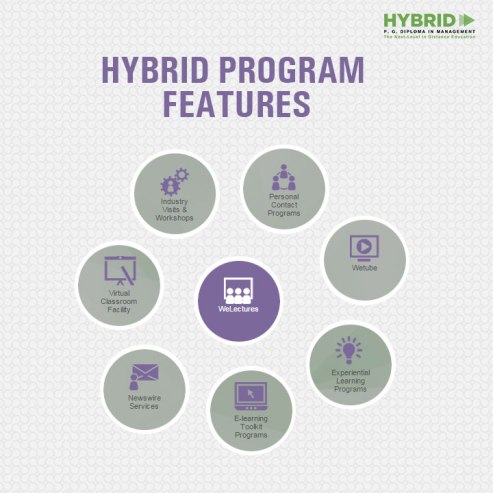Time management is a much talked about, yet, one of the most overlooked managerial attributes.
As a manager, a professional’s key responsibility is to manage his/her time while helping the team to manage their own. Not only is effective and efficient time management beneficial, but it is also critical to an individual’s and organization’s success.
Here are 5 essential tips you would want to follow for effective time management:
PRIORITIZE:
 There will always be multiple things to be done together. But by understanding what is most critical and of the highest importance, that you, as a manager will be able to allocate time to tasks. With proper prioritization and careful management of deprioritized tasks, you can bring order to chaos, reduce stress, and manage time smartly.
There will always be multiple things to be done together. But by understanding what is most critical and of the highest importance, that you, as a manager will be able to allocate time to tasks. With proper prioritization and careful management of deprioritized tasks, you can bring order to chaos, reduce stress, and manage time smartly.
ONE-THING-AT-A-TIME:
Rem ember when our teachers in school used to reprimand us for trying to do too many things at a time? We need to recall that and implement it in our professional lives too. As a manager, you are expected to do multiple things like answering emails, making proposals, reports, attending calls etc. – all at the same time. Hence it is highly essential that you handle one type of tasks at a time and move on to the next, only when you finish the previous one.
ember when our teachers in school used to reprimand us for trying to do too many things at a time? We need to recall that and implement it in our professional lives too. As a manager, you are expected to do multiple things like answering emails, making proposals, reports, attending calls etc. – all at the same time. Hence it is highly essential that you handle one type of tasks at a time and move on to the next, only when you finish the previous one.
SET SPECIFIC GOALS:
 Effective and efficient time management calls for setting ‘smart’ goals. It motivates you to work in a time-bound manner. However, ‘goal-setting’ does not merely end with setting goals. You need to chart out a plan of action to realize these goals. And most importantly, you should stick to the action plan that you have created. That is when you would know if you are able to accomplish it in a timeline you have set.
Effective and efficient time management calls for setting ‘smart’ goals. It motivates you to work in a time-bound manner. However, ‘goal-setting’ does not merely end with setting goals. You need to chart out a plan of action to realize these goals. And most importantly, you should stick to the action plan that you have created. That is when you would know if you are able to accomplish it in a timeline you have set.
COMMUNICATE:
 At times, when you are trying to accomplish multiple tasks, you might not be able to communicate in an ideal manner. But effective communication is indispensable for managing time efficiently, especially for high priority tasks where you must set aside time to communicate with the people involved. Consequently, you would realize that just by communicating at the right time, with the right people, you are able to manage your time.
At times, when you are trying to accomplish multiple tasks, you might not be able to communicate in an ideal manner. But effective communication is indispensable for managing time efficiently, especially for high priority tasks where you must set aside time to communicate with the people involved. Consequently, you would realize that just by communicating at the right time, with the right people, you are able to manage your time.
TAKE-A-BREAK:
Someti mes, when we try to handle a lot of responsibilities, fatigue gets to us. Hence, it is necessary to take a break and refresh your mind so that you come back recharged with more productivity. Experts believe that more you space out your thoughts, the better you are able to think and with clarity. This not only helps you achieve your goals but also instills positivity within your team.
mes, when we try to handle a lot of responsibilities, fatigue gets to us. Hence, it is necessary to take a break and refresh your mind so that you come back recharged with more productivity. Experts believe that more you space out your thoughts, the better you are able to think and with clarity. This not only helps you achieve your goals but also instills positivity within your team.
As a part of management studies, aspiring managers, executives and professionals are taught about time management. Online Hybrid PGDM programs impart training to enhance time management skills through various interactive workshops, simulation exercises, experiential learning and so on.
So learn to value your time just as you would value your money. After all, “time is money”, essentially, isn’t it?








 ember when our teachers in school used to reprimand us for trying to do too many things at a time? We need to recall that and implement it in our professional lives too. As a manager, you are expected to do multiple things like answering emails, making proposals, reports, attending calls etc. – all at the same time. Hence it is highly essential that you handle one type of tasks at a time and move on to the next, only when you finish the previous one.
ember when our teachers in school used to reprimand us for trying to do too many things at a time? We need to recall that and implement it in our professional lives too. As a manager, you are expected to do multiple things like answering emails, making proposals, reports, attending calls etc. – all at the same time. Hence it is highly essential that you handle one type of tasks at a time and move on to the next, only when you finish the previous one.

 mes, when we try to handle a lot of responsibilities, fatigue gets to us. Hence, it is necessary to take a break and refresh your mind so that you come back recharged with more productivity. Experts believe that more you space out your thoughts, the better you are able to think and with clarity. This not only helps you achieve your goals but also instills positivity within your team.
mes, when we try to handle a lot of responsibilities, fatigue gets to us. Hence, it is necessary to take a break and refresh your mind so that you come back recharged with more productivity. Experts believe that more you space out your thoughts, the better you are able to think and with clarity. This not only helps you achieve your goals but also instills positivity within your team.
